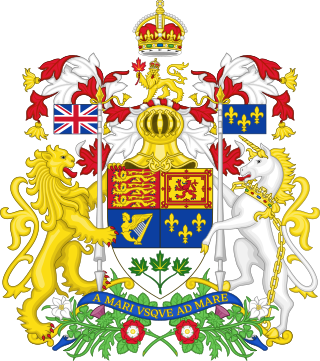
The 16th Canadian Parliament was in session from 9 December 1926, until 30 May 1930. The membership was set by the 1926 federal election on 14 September 1926, and it changed only somewhat due to resignations and by-elections until it was dissolved prior to the 1930 election.

The 18th Canadian Parliament was in session from 6 February 1936, until 25 January 1940. The membership was set by the 1935 federal election on 14 October 1935, and it changed only somewhat due to resignations and by-elections until it was dissolved prior to the 1940 election.

The 19th Canadian Parliament was in session from 16 May 1940, until 16 April 1945. The membership was set by the 1940 federal election on 26 March 1940, and it changed only somewhat due to resignations and by-elections until it was dissolved prior to the 1945 election.

The 20th Canadian Parliament was in session from 6 September 1945, until 30 April 1949. The membership was set by the 1945 federal election on 11 June 1945, and it changed only somewhat due to resignations and by-elections until it was dissolved prior to the 1949 election.
By-elections to the 17th Canadian Parliament were held to elect members of the House of Commons of Canada between the 1930 federal election and the 1935 federal election. The Conservative Party of Canada led a majority government for the 17th Canadian Parliament.
By-elections to the 15th Canadian Parliament were held to elect members of the House of Commons of Canada between the 1925 federal election and the 1926 federal election. Initially the Liberal Party of Canada and the Progressive Party of Canada formed a coalition government for the 15th Canadian Parliament, following the King–Byng Affair the Conservative Party of Canada was given a minority government, which dissolved quickly.
By-elections to the 14th Canadian Parliament were held to elect members of the House of Commons of Canada between the 1921 federal election and the 1925 federal election. The Liberal Party of Canada led the government, which fluctuated between a minority and majority, for the 14th Canadian Parliament.
By-elections to the 13th Canadian Parliament were held to elect members of the House of Commons of Canada between the 1917 federal election and the 1921 federal election. Prime Minister Robert Borden, then Arthur Meighen, led a majority government consisting members collectively known as the Unionist Party, during the 13th Canadian Parliament.
By-elections to the 12th Canadian Parliament were held to elect members of the House of Commons of Canada between the 1911 federal election and the 1917 federal election. The Conservative Party of Canada led a majority government for the 12th Canadian Parliament.
By-elections to the 11th Canadian Parliament were held to elect members of the House of Commons of Canada between the 1908 federal election and the 1911 federal election. The Liberal Party of Canada led a majority government for the 11th Canadian Parliament.
By-elections to the 10th Canadian Parliament were held to elect members of the House of Commons of Canada between the 1904 federal election and the 1908 federal election. The Liberal Party of Canada led a majority government for the 10th Canadian Parliament.
By-elections to the 9th Canadian Parliament were held to elect members of the House of Commons of Canada between the 1900 federal election and the 1904 federal election. The Liberal Party of Canada led a majority government for the 9th Canadian Parliament.
By-elections to the 8th Canadian Parliament were held to elect members of the House of Commons of Canada between the 1896 federal election and the 1900 federal election. The Liberal Party of Canada led a majority government for the 8th Canadian Parliament.
By-elections to the 7th Canadian Parliament were held to elect members of the House of Commons of Canada between the 1891 federal election and the 1896 federal election. The Conservative Party of Canada led a majority government for the 7th Canadian Parliament.
By-elections to the 6th Canadian Parliament were held to elect members of the House of Commons of Canada between the 1887 federal election and the 1891 federal election. The Conservative Party of Canada led a majority government for the 6th Canadian Parliament.
By-elections to the 5th Canadian Parliament were held to elect members of the House of Commons of Canada between the 1882 federal election and the 1887 federal election. The Conservative Party of Canada led a majority government for the 5th Canadian Parliament.
By-elections to the 4th Canadian Parliament were held to elect members of the House of Commons of Canada between the 1878 federal election and the 1882 federal election. The Conservative Party of Canada led a majority government for the 4th Canadian Parliament.

By-elections to the 3rd Canadian Parliament were held to elect members of the House of Commons of Canada between the 1874 federal election and the 1878 federal election. The Liberal Party of Canada led a majority government for the 3rd Canadian Parliament.
By-elections to the 2nd Canadian Parliament were held to elect members of the House of Commons of Canada between the 1872 federal election and the 1874 federal election. The Conservative Party of Canada led a majority government for most of the 2nd Canadian Parliament.
By-elections to the 1st Canadian Parliament were held to elect members of the House of Commons of Canada between the 1867 federal election and the 1872 federal election. The Conservative Party of Canada led a majority government for the 1st Canadian Parliament.